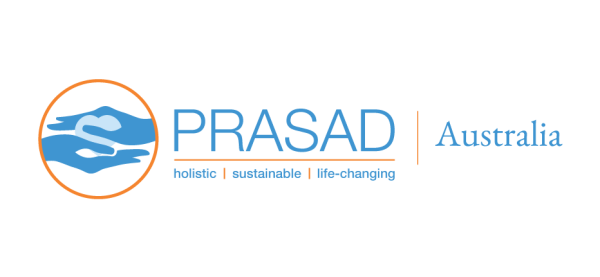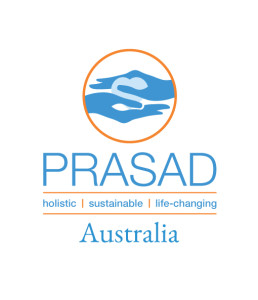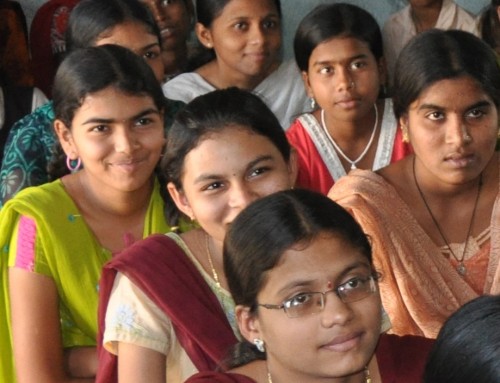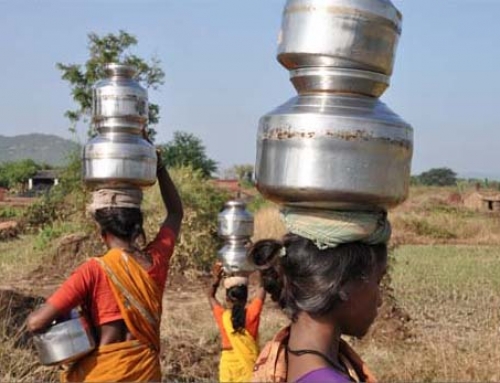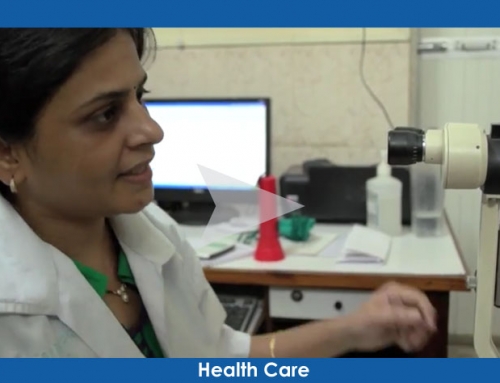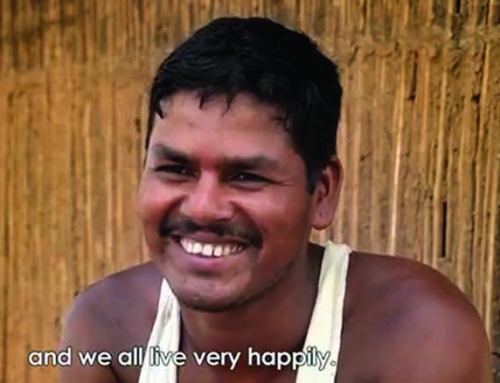It doesn’t get more basic – but in India’s Tansa Valley this is news.
Unsafe water, poor sanitation and lack of hygiene are still common causes of illness and death. Many of these diseases are preventable.
‘Bang for development buck’ investing in water and sanitation is high on the list. The World Health Organisation says each $1 invested could yield an economic return of between $3 and $34 and save up to $7.3 billion per year world wide.
Of the 1 billion people in the world who have no toilet, nearly 600 million are in India. It is impossible to keep faeces from crops, wells, food and children’s hands. Ingested bacteria and worms spread diseases, especially of the intestine. Diseases which in turn help to explain why rates of child malnourishment in India are not improving faster. Lack of toilets is also a safety issue for young women who have to leave their homes after dark.
Access is not the only issue. Cultural attitudes are also important, such as seeing toilets as impure, especially when located near the home.
PRASAD Chikitsa has been improving water and sanitation through its model village initiative since 2014. Staff meet with villagers to explain the health and economic benefits of building a toilet – a two soak pit latrine. Each family helped to build one puts in a lot of hard work and some of the materials, which builds their commitment to the change.
How building toilets changes lives
Ms Perry Batra, Nandani Village Area “Every year the rainy season was a curse”
 Mrs. Perry Batra and her family live in a tiny house in the forest, outside the tribal village of Nandani, five km from Ganeshpuri. Her husband left long ago. Mrs Batra now cares for her mother aged 100, and her brother who is paralyzed and suffers from mental illness. Her two sons are illiterate and are cognitively impaired. The whole family depends on a small piece of land and scant ‘daily wages work’ for their livelihood.
Mrs. Perry Batra and her family live in a tiny house in the forest, outside the tribal village of Nandani, five km from Ganeshpuri. Her husband left long ago. Mrs Batra now cares for her mother aged 100, and her brother who is paralyzed and suffers from mental illness. Her two sons are illiterate and are cognitively impaired. The whole family depends on a small piece of land and scant ‘daily wages work’ for their livelihood.
Mrs. Batra attended village meetings with PRASAD staff about water and sanitation and put her name down to build a family toilet. She thought this would help her brother and mother in particular, saying that “every year the rainy season is a curse” for people without facilities.
As soon as she knew what was required she started work- digging the two soak pits herself with help from her sons. PRASAD provided guidance and materials in two stages as the work progressed. Delivering bags of cement, a ceramic toilet pot, a pipe and a door frame; then later roofing, a door and kadappa (stone slabs) to cover the soak pits.
The family completed it quickly. Even Mrs Batra’s mother got involved, spraying water on the newly plastered wall.
Mrs. Batra said “Carrying out my family responsibilities is a very tough task. People show sympathy to me, but no one comes forward to support. PRASAD Chikitsa is exceptional. I am really thankful for their efforts and support which will change our lives.”
How you can help
| $10 | Deworm 100 schoolchildren |
| $12 | Buy a water filter for a family |
| $50 | Treat 10 typhoid patients |
| $125 | Sponsor a family to build their own toilet |
| $130 | Support a Self-Help Group for a year |
| $1000 | Sponsor Vocational education for one |
Donations are tax deductible
All donations make a difference and are gratefully received.
Your ongoing support – from just $15 per month – helps us to sustain, plan and grow this work.
Mrs. Asha Shankar Jadhav, Kalambhon Village “Women suffer a lot…”
 Mrs. Asha Jadhav, a 40 year old widow, is an active member of the Durga Women’s Self-Help Group in Kalambhon village, about six km from Ganeshpuri. All members of the group are poor tribal people with a farming background. Mrs. Asha lives in small home with her school age daughter.
Mrs. Asha Jadhav, a 40 year old widow, is an active member of the Durga Women’s Self-Help Group in Kalambhon village, about six km from Ganeshpuri. All members of the group are poor tribal people with a farming background. Mrs. Asha lives in small home with her school age daughter.
After attending PRASAD Chikitsa’s awareness talks on hygiene and sanitation. Mrs Jadhav asked for help to build a toilet.
Mrs. Jadhav and her daughter did the labouring work themselves. They dug two large soak pits and laid the foundation for the toilet. Staff inspected her work and delivered the first load of materials: bags of cement, a ceramic toilet pot, a pipe and a door frame. When this stage was completed, more materials were delivered: roofing, a door and kadappa (stone slabs) to cover the soak pits. The construction was completed and she and her daughter now have their own toilet. They no longer need to look for open but secluded places early in the mornings. In years to come this toilet will also provide night soil for fertilizer.
Mrs. Asha Jadhav said lack of facilities of health and sanitation is a big issue. “women suffer a lot [due to the lack of facilities]. To go to open places for one’s daily ablutions is really disgusting and embarrassing… But this problem has begun to end in our village ….Thanks to PRASAD Chikitsa’s initiative and providing incredible support to achieve it.”
A gift of $125 means another family can build their own toilet
 “I saw first hand the love and respect”
“I saw first hand the love and respect”
Long time supporters Jill and Gary Whitley from NSW’s South Coast, have volunteered at PRASAD’s eye camps, and with the mobile hospital. Jill says:
“….I know that donations are honoured with integrity, and committed wholeheartedly to improving the present welfare and future wellbeing of the people of the Tansa Valley.
I saw first hand the love and respect afforded every patient. The heartfelt responses made me realize what an impact even a small donation can generate. I feel gratitude and love each time I think of the work of PRASAD Oz.”
